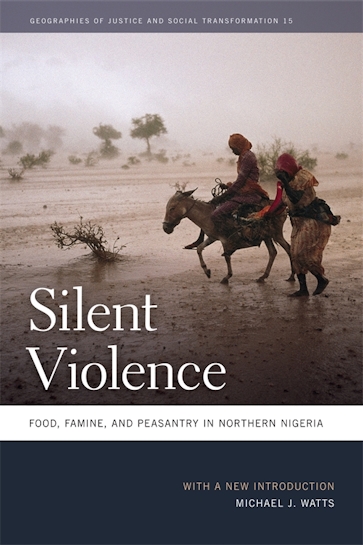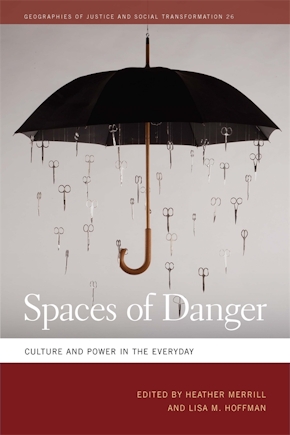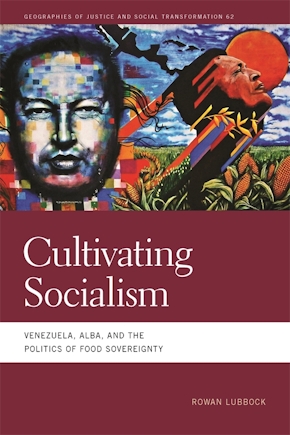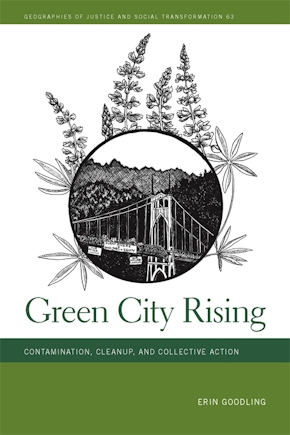Silent Violence
Food, Famine, and Peasantry in Northern Nigeria
Title Details
Pages: 720
Illustrations: 27 b&w photos, 4 figures
Trim size: 6.000in x 9.000in
Formats
Paperback
Pub Date: 02/01/2013
ISBN: 9-780-8203-4445-4
List Price: $46.95
Silent Violence
Food, Famine, and Peasantry in Northern Nigeria
Skip to
- Description
- Reviews
Why do famines occur and how have their effects changed through time? Why are those who produce food so often the casualties of famines? Looking at the food crisis that struck the West African Sahel during the 1970s, Michael J. Watts examines the relationships between famine, climate, and political economy.
Through a longue durée history and a detailed village study Watts argues that famines are socially produced and that the market is as fickle and incalculable as the weather. Droughts are natural occurrences, matters of climatic change, but famines expose the inner workings of society, politics, and markets. His analysis moves from household and individual farming practices in the face of climatic variability to the incorporation of African peasants into the global circuits of capitalism in the colonial and postcolonial periods.
Silent Violence powerfully combines a case study of food crises in Africa with an analysis of the way capitalism developed in northern Nigeria and how peasants struggle to maintain rural livelihoods. As the West African Sahel confronts another food crisis and continuing food insecurity for millions of peasants, Silent Violence speaks in a compelling way to contemporary agrarian dynamics, food provisioning systems, and the plight of the African poor.
This book is simply a classic. If you want to understand the intellectual guts of political ecology, or the conceptual pulse of food crises, this is the place to go.
—Neil Smith, City University of New York
Silent Violence is truly the seminal work of political ecology— synthesizing political economy and environmental history—to which my own writing owes an enormous debt. A conceptual masterpiece, it also remains—tragically—an all-too-accurate account of Nigeria’s torments.
—Mike Davis, author of Late Victorian Holocausts: El Niño Famines and the Making of the Third World
A big book in every sense—historically grounded, geographically sensitive and extraordinarily humane. . . . In many ways it remains a model of intelligent and discerning scholarship: meticulously researched, painstakingly referenced, and beautifully written.
—Progress in Human Geography
[An] important book.
—Amartya Sen, New York Times
Looking at the food crisis that struck the West African Sahel in the 1970s, Michael J. Watts examines the relationships between famine, climate, and political economy. . . . As the West African Sahel confronts another food crisis and continuing food insecurity for millions of peasants, Silent Violence speaks in a compelling way to the contemporary agrarian dynamics, food provisioning systems, and the plight of the African poor.
—Bob Edmonds, McCormick Messenger



